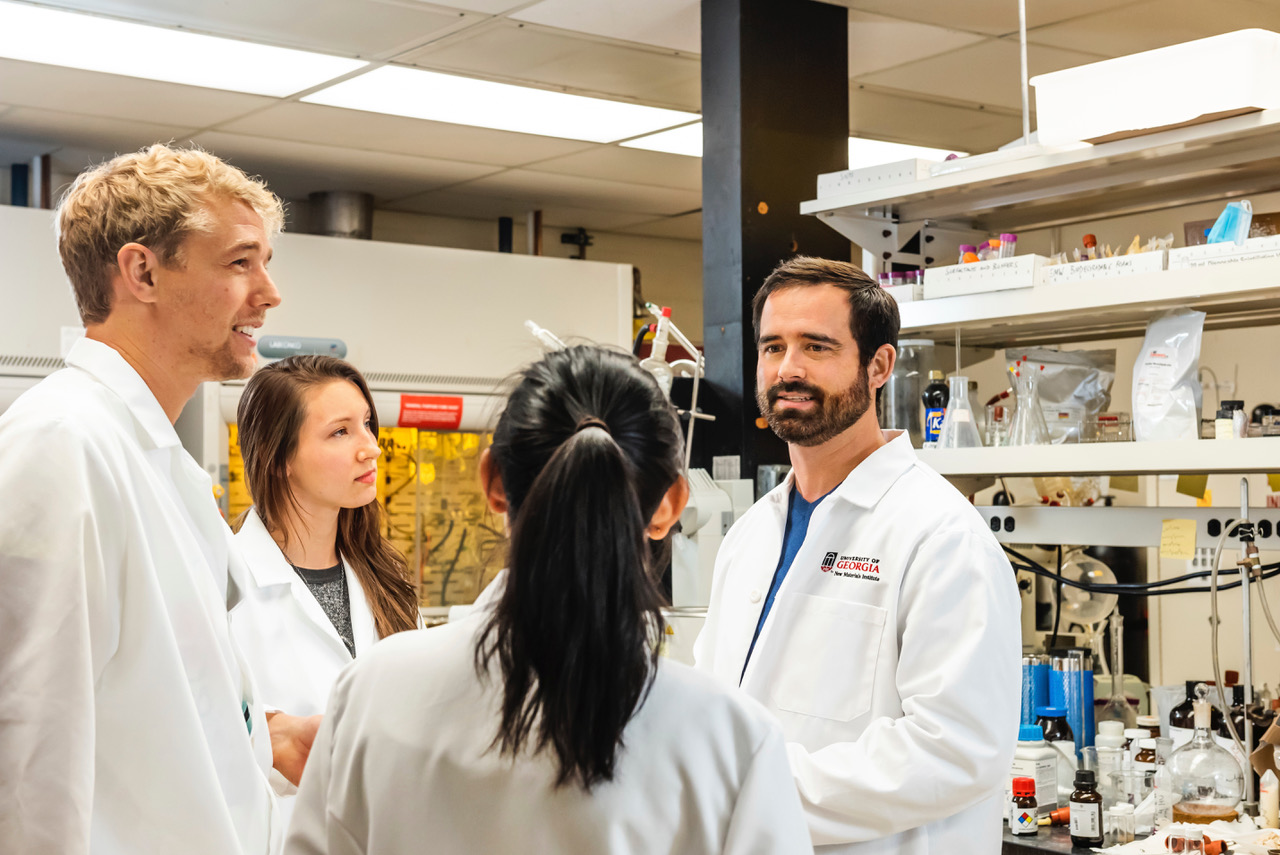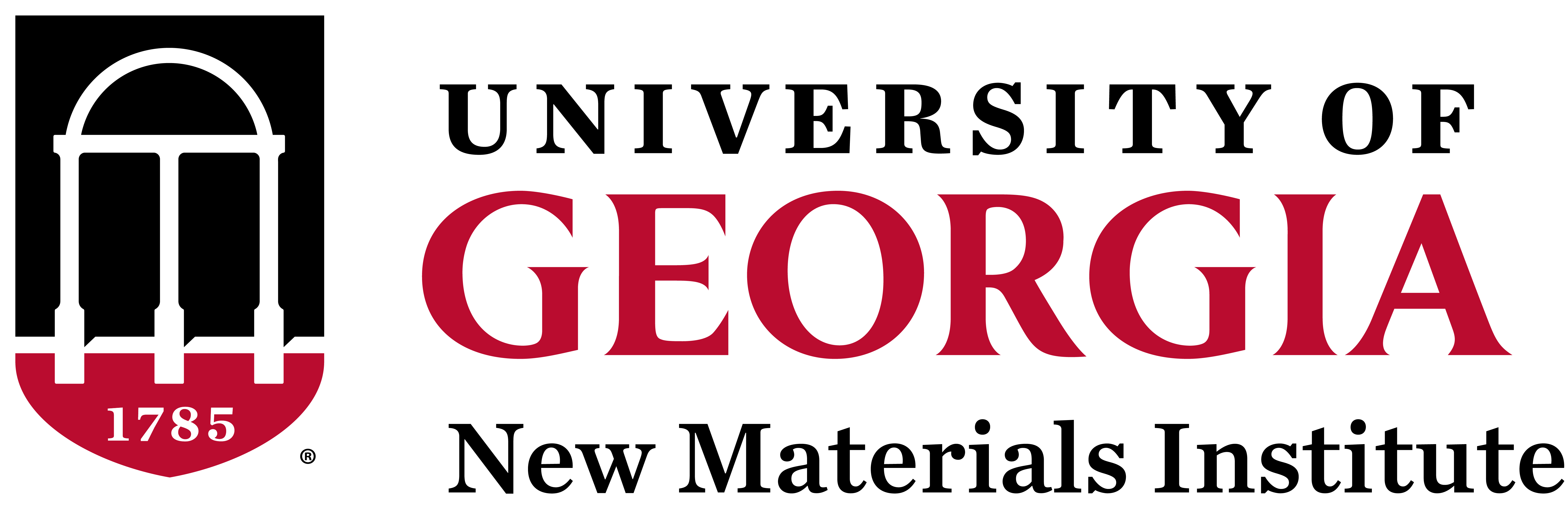UGA New Materials Institute is a finalist for economic development awards

Professor Jason Locklin, right, director of the New Materials Institute, discusses a research project with students in his laboratory.
The New Materials Institute, a component of the UGA Office of Research with roots in the College of Engineering, along with the Carl Vinson Institute of Government and the J.W. Fanning Institute for Leadership Development, both units of UGA Public Service and Outreach, are among 24 finalists for the University Economic Development Association 2019 Awards of Excellence. UGA’s finalists are in different categories and will not compete with one another.
This marks the third year that three UGA programs have been selected as finalists for national awards recognizing innovation in economic development. UGA is the only university that has had three finalists for three consecutive years.
UEDA represents higher education, private sector and community economic development stakeholders across North America. Entries were judged by a panel of university and economic development professionals based on the alignment of their institution’s core mission activities with regional economic development goals.
Categories include innovation, talent and place, as well as the intersections of those three categories. Criteria for judging included originality, scalability, sustainability, impact and the feasibility of other organizations replicating the initiatives in their communities.
Programs selected as finalists are:
- The UGA New Materials Institute as a model for industry engagement and collaboration with higher education research. In the New Materials Institute, faculty work with public and private partners to pioneer systems and materials that promote a circular economy, meaning that products are recovered and recycled at the end of their useful lives. Programs range from innovative waste management systems to biodegradable materials that meet the high expectations of both industry and consumers. Most importantly, the institute trains the next generation of engineers and scientists to use this holistic approach. (Innovation category.)
- A revitalization/visioning program for downtown Clarkesville, Georgia, developed by the Carl Vinson Institute of Government. Through the Georgia Downtown Renaissance Partnership, a community revitalization initiative with the Georgia Municipal Association, the Georgia Cities Foundation and the Georgia Department of Community Affairs, city and business leaders and Clarkesville citizens came together to create a master plan for their downtown after a fire in 2014 gutted three buildings and destroyed four businesses. New apartments, restaurants and retail outlets in the renovated business district have revitalized the downtown and the master plan continues to drive development. (Place category.)
- A youth leadership program incorporated into a Loganville, Georgia, high school, developed by the J.W. Fanning Institute for Leadership Development. The Youth in Action program empowers students to facilitate their own goals and establish themselves as leaders in the school community, serving on steering committees that help school administrators develop ideas for school improvement. Since the curriculum was introduced in 2015, high school graduation rates have increased from 78.3% (2013-14) to 86.2% (2016-17) and are well above the state average of 81.6%. (Talent category.)
“I am pleased that UEDA recognizes the value in connecting translational research units like the New Materials Institute with a range of industry partners to spark new ideas and advances in areas of societal need,” said Vice President for Research David Lee. “We believe our approach with New Materials is replicable across a range of research areas and applications. It has tremendous advantages: for the university in supporting our research, for the partner industries in pushing their R&D forward, and for the public who will ultimately reap the benefits of these collaborations.”
Winners will be announced during the UEDA Annual Summit in Reno-Tahoe, Nevada, Sept. 29-Oct. 2, 2019.
Story by Kelly Simmons and Michael Terrazas
